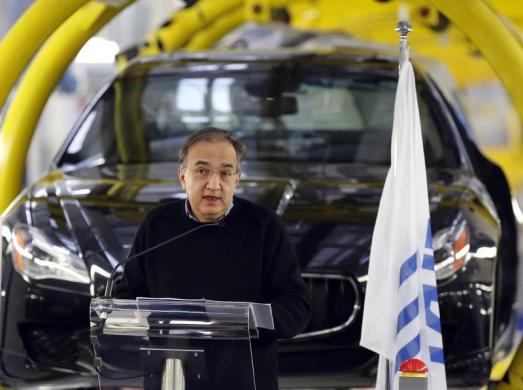Marchionne's Fiat-Chrysler coup the beginning, not the end
(Agencies) Updated: 2014-01-03 14:08
 |
|
Italian car maker Fiat's Chief Executive Sergio Marchionne speaks during the Maserati new opening plant in Turin, January 30, 2013. [Photo/Agencies] |
Fiat's deal to take full control of Chrysler on better-than-expected terms has cemented CEO Sergio Marchionne's dealmaking reputation, but he might run out of road to channel that drive into operational success for the business.
The toll taken by two years of talks and an accompanying investment freeze has already delayed the Italian carmaker's recovery, and as Marchionne has said he might retire in 2015, his legacy could depend on how his successor plays the hand.
Under the $4.35 billion deal unveiled on New Year's Day, Fiat will acquire the 41.46 percent of Chrysler it does not already own from the United Auto Workers (UAW) union's retiree healthcare trust.
But Bernstein analyst Max Warburton predicted that Fiat shares, which got a 16 percent boost from the deal on Thursday, would hereafter be kept in check by the scale of the task ahead.
"Fiat and Chrysler is still very much a work in progress," he said.
The deal timing and price - below expectations and financed mostly by Chrysler cash rather than by Fiat - impressed even those familiar with Marchionne's track record.
In 2005, soon after joining as CEO, he persuaded General Motors to pay Fiat $2 billion not to exercise an option to sell its auto division to the US carmaker.
Four years later he took control of bankrupt Chrysler through an initial 20 percent stake, stepping in after rival Nissan CEO Carlos Ghosn got cold feet over a similar cash-free deal he had negotiated with Chrysler.
More recently, Marchionne has pulled off the Italian carmaker's separation from farm machinery maker Fiat Industrial FI.MI and secured the latter's merger with CNH after sweetening a buyout offer to minority investors.
Those successes reflect Marchionne's "very tough" negotiating tactics and an aversion to compromise, said Enzo Masini, an official with the FIOM union, which has clashed repeatedly with the Fiat boss over pay and conditions in Italian plants.
"He always tries to negotiate from a position of strength," Masini said. "If he doesn't feel he has an advantage, a situation where he can pin you against the wall, he won't open a negotiation."
- NHTSA says finds no 'defect trend' in Tesla Model S sedans
- WTO rare earth ruling is unfair
- Amway says 2014 China sales may grow 8%
- President Xi in Europe: Forging deals, boosting business
- CNOOC releases 2013 sustainability report
- Local production by Chery Jaguar Land Rover this year
- Car lovers test their need for speed in BMW Mission 3
- China stocks close mixed Monday

















